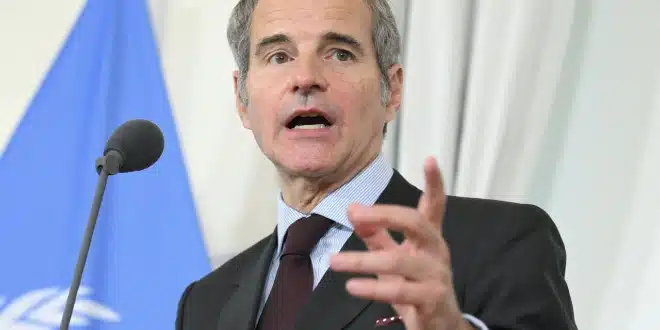The head of the International Atomic Energy Agency (IAEA), Rafael Grossi, has warned that Iran could resume uranium enrichment within a few months, despite recent airstrikes that caused significant damage to its nuclear infrastructure. His comments come amid growing concern over the status and location of Iran’s stockpile of enriched uranium following coordinated attacks by Israel and the United States.
On June 13, Israel initiated a bombing campaign targeting Iranian nuclear and military sites, citing the need to prevent Tehran from advancing its nuclear ambitions—a claim Iran continues to refute. Following Israel’s actions, the United States carried out additional strikes on three facilities critical to Iran’s nuclear operations.
Iran’s Foreign Minister Abbas Araghchi acknowledged serious damage to the nuclear facilities, although the full extent remains unclear. U.S. President Donald Trump claimed these attacks had set back Iran’s nuclear program by decades. However, Grossi, in an interview with CBS News, cautioned that parts of the program remain functional and could be restored relatively quickly.
Grossi indicated that Iran might be able to re-establish uranium enrichment operations, with a few centrifuge cascades potentially spinning again within months. These centrifuges would be capable of producing enriched uranium, a material that, if further refined, could be used in the development of nuclear weapons.
Of particular concern is Iran’s estimated 408.6 kilograms of uranium enriched to 60 percent purity—a level exceeding civilian energy requirements but still below the 90 percent typically associated with weapons-grade material. Experts suggest this quantity, if enriched further, could be used to produce over nine nuclear warheads.
The IAEA chief expressed uncertainty regarding the current status of this uranium, stating that it is unknown whether some or all of the stockpile was destroyed in the airstrikes or relocated beforehand. He emphasized the need for clarity, noting that any undisclosed movement or concealment of the material would complicate monitoring efforts.
Iran Limits Cooperation as International Monitoring Stalls
Following the attacks, Iran’s parliament voted to suspend cooperation with the IAEA. Tehran has since denied Grossi’s request to visit key damaged facilities, including the Fordo enrichment site. The IAEA maintains that access is essential for determining what remains at these sites and verifying the whereabouts of any nuclear material.
Grossi stated that the agency must be able to confirm both the current inventory and condition of nuclear assets within Iran. Without such verification, global nuclear oversight remains compromised.
In a separate interview, President Trump told Fox News that he doubted Iran had managed to relocate its uranium stockpile ahead of the strikes, citing the short notice of the military action. He added that moving such material is a complex task, implying confidence that the majority of it remained in place.
Meanwhile, U.S. Secretary of State Marco Rubio reiterated Washington’s endorsement of the IAEA’s mission. He praised the agency’s commitment to monitoring and verification in Iran and expressed appreciation for Grossi’s leadership.
The full interview with Rafael Grossi is scheduled to air on CBS’s “Face the Nation with Margaret Brennan,” offering further insights into the IAEA’s assessment of Iran’s nuclear status.


